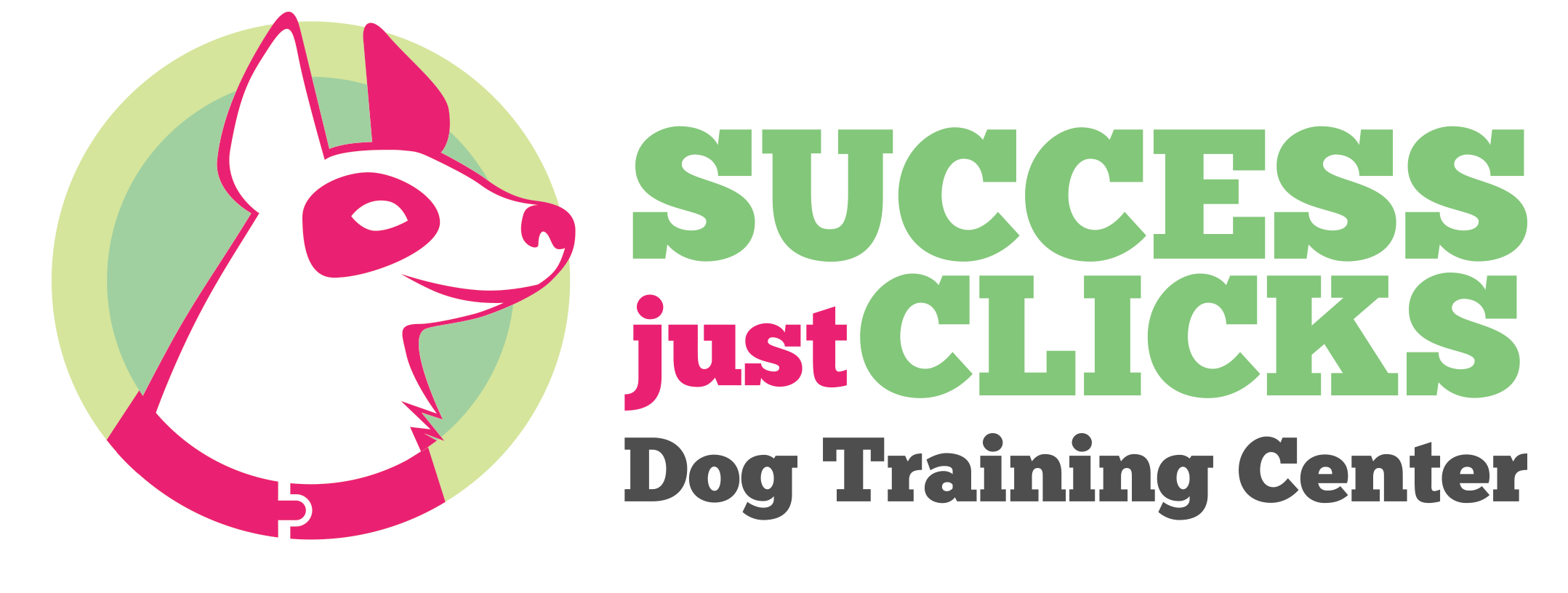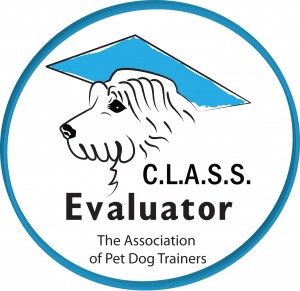I know I talk an awful lot about the CGC (canine good citizen) title/test but I wanted to share another program that I think, once it becomes more well known, will actually be my preference. The APDT (Association of Pet Dog Trainers) came out with a program about a year and a half ago called C.L.A.S.S (Canine Life And Social Skills). This is similar to the CGC in that human/canine teams can earn titles/certifications as they pass tests.
C.L.A.S.S. actually has a series of tests that encourages people to continue working with their dog. Teams can earn a BA, MA, and PhD. I think having the varying levels that can be achieved is a motivational tool to keep people working with their dogs over time–training, in my opinion, never really eneds.
There are many aspects that make C.L.A.S.S. a more difficult program than the CGC but then others that make it easier for some dogs to pass than the CGC. C.L.A.S.S. does not have a supervised separation, which can often be a source of struggles but it also includes several long stays and recalling past food/toys in the PhD. level. Each level of C.L.A.S.S. has different requirements that are often sequential–so in the BA level, a dog must simply recall 10ft; in the MA level the dog is distracted by a person holding a treat and the handler must recall the dog 15ft away from the treat; and in the PhD. level, the dogs must recall 20ft past two food bowls and a few toys.
One of the things I have liked a lot about the C.L.A.S.S program is that it emphasizes real-life situations. The CGC test is very flat in terms of real-life applications–basically, it’s relatively easy to teach to the test particularly if the test is happening indoors. C.L.A.S.S. tests car manners, door manners, a stay with heavy distractions (people walking around dropping things), settling on a mat at “a cafe”, loose leash walking through distractions while the handler carries an open beverage or unsteady object, and being able to be recalled and leashed up. These are skills necessary for real life situations and while the CGC has some real-life skills, they are often tested in such a sterile environment it’s not completely applicable. For a C.L.A.S.S team, the test may start at the student’s car, then follow them through a ‘crowd’ of dogs to the entrance door to the testing area, and then inside for the rest of the test.
Another thing I really like about the C.L.A.S.S. test is that it allows handlers to advocate for their dogs. Dogs can earn up to their MA without being handled by a stranger. Their are many dogs who are very safe around people but who don’t want to be pet by them. In C.L.A.S.S, the dog must sit as a person approaches and the stranger asks to pet the dog to give him a treat. Handlers can say “no, he’s a little ___” or they can say “sure you can give him a treat and scratch him under the chin (or wherever the dog prefers)”. This is a favorite feature and one I wish CGC had… I don’t think dogs have to seek out or accept petting in order to be a good citizen. If the owners have enough confidence to advocate for them and tell people that they can’t pet, but the dog is totally comfortable with a person approaching and talking for minute, I think that should absolutely be a positive.
Anyhow, if you want anymore information about the C.L.A.S.S program, check out this website: My Dog Has Class.
The reason I mention this is that I recently passed the certification tests to become a C.L.A.S.S Evaluator which means I will hopefully be offering C.L.A.S.S. testing come spring or summer after offering a C.L.A.S.S. class.
I’m so excited about this opportunity! I cannot wait to hand out some BAs, MAs, and PhDs! Who’s going to be my first Doctorate degree earner!?!

